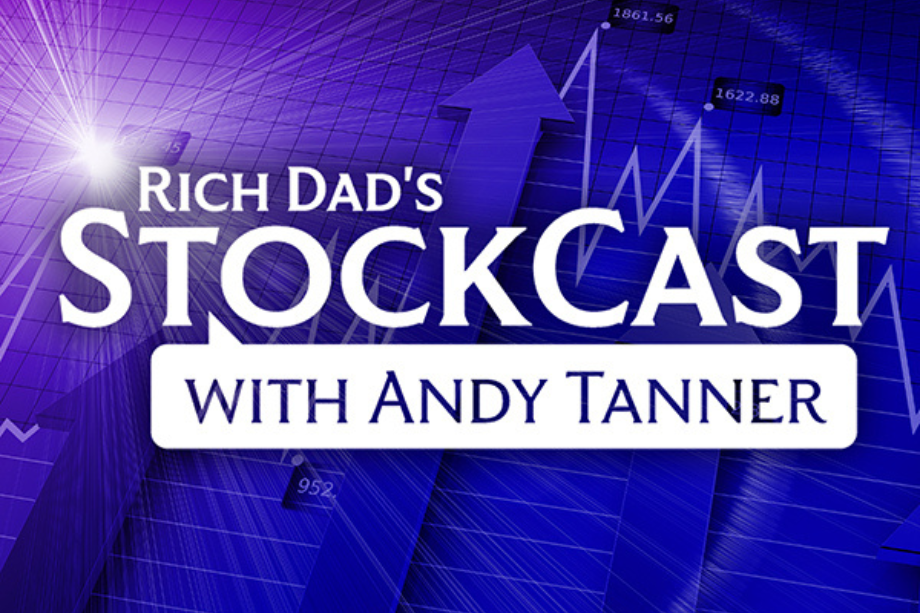Many people with a 401(k) plan view themselves as investors preparing for retirement. However, they frequently lack knowledge about their investment choices, remain unaware of their investment performance, and fail to grasp the consequences of relying on a 401(k) for retirement sustenance.
Rich Dad asks, if you are oblivious to the nature of your investments and remain uninformed about the performance of these investments, can you genuinely regard yourself as an investor? Moreover, how can you determine the security of your retirement?
The short answer is: you can’t and you don’t.
The 401(k) was not created for seasoned investors.
Herbert Whitehouse, who previously served as a human resources executive at Johnson & Johnson, was instrumental in the early adoption of the 401(k) plan. He admits that they were not trying to revolutionize social policy. Similarly, Gerald Facciani, once the leader of the American Society of Pension Actuaries, acknowledges that the 401(k) was excessively promoted. He played a key role in thwarting a Reagan administration initiative to eliminate the 401(k) in the mid-1980s.
Error: Campaign not found.
A 2017 “Wall Street Journal” article titled “The Champions of the 401(k) Lament the Revolution They Started” detailed the regrets expressed by some of the original advocates of the 401(k). Despite its widespread adoption as the primary savings method for most Americans, early supporters now express remorse about the outcome of their invention. They concede that the 401(k) was not intended to be the main retirement vehicle and admit that they relied on overly optimistic projections to market the plan during its infancy.
Critics also highlight that the widespread adoption of 401(k) plans has made employees vulnerable to significant stock market downturns and hefty fees charged by Wall Street investment managers. This shift has also facilitated the process for corporations to discontinue guaranteed retirement payments.
In retrospect, it is evident that the 401(k) has contributed to a retirement crisis in the United States. Reporting by the “Wall Street Journal” suggests that 52% of U.S. households are at risk of depleting their funds in retirement, based on asset projections, home values, debt, and expected Social Security income. Alarmingly, about 45% of households have no retirement savings at all.
Despite these concerns, some still defend the 401(k) plan. They argue that if individuals saved a sufficient portion of their income in a 401(k), specifically 3% with an anticipated annual growth of 7%, it could adequately fund their retirement. However, this perspective does not address the broader issues raised by the plan’s early proponents and critics.
Vanguard doesn’t buy into 7% annual increases (and neither should you)
Vanguard is not convinced by the notion of 7% annual increases, and neither should the public be. There are two primary issues with this commonly accepted idea of a 7% annual increase:
The past performance of the market is not a reliable indicator of future outcomes.
A closer examination of historical data reveals that average returns can be deceptive. The stock market experiences significant fluctuations, which have resulted in an average gain of 7%. However, this figure does not capture the periods of stagnation from 1965 to 1983, the double-digit growth of the 1950s, 80s, and 90s, or the negative growth of the 2000s. An individual’s timing within these market cycles could greatly impact their retirement savings.
Currently, there may be a downturn in the market. In 2018, CNBC reported that Vanguard’s economists projected that, over the ensuing decade, average annual U.S. stock market returns would likely be between 3% and 5%. Once inflation, anticipated to stay below 2%, is taken into account, the expected real rate of return could be less than 3%.
These projections were made prior to the onset of a global pandemic, a surge in inflation, and escalating global tensions due to Russia’s military actions in Ukraine.
Rich Dad, considering the insights of financial expert Andy Tanner, suggests that the market might not only be experiencing a slowdown but could be on the verge of a significant downturn similar to those seen in 2000 and 2008.
Investing in a 401k means investing in inflated assets
In the realm of equities, the Shiller PE index, which is a price-to-earnings ratio based on the average inflation-adjusted earnings from the past decade, is closely monitored by many investors. Historically, the median Shiller PE Ratio has hovered around 16 to 17, serving as a reliable gauge for desired value. Essentially, a PE of 16 indicates that investors are spending approximately $16 for every $1 of earnings that a stock generates.
Error: Campaign not found.
Historical examination reveals that the PE Ratio for the S&P 500 has seldom surpassed this benchmark. Prior to the 1929 crash, stock prices nearly doubled, with investors willing to pay as much as $30 for every dollar of S&P 500 earnings. During the dot-com bubble, exorbitant amounts were paid for companies with no earnings at all.
High stock prices prompt critical questions: Are companies with steep valuations producing sufficient profits to justify their investment worth? Do the gains validate the hefty price tags? Investors tend to keep buying only if they anticipate growth, but if growth prospects dim, a sell-off may follow.
This does not necessarily indicate an immediate market crash. However, historically, there have been rare instances when investors have agreed to pay such high prices for stocks. The dot-com bubble is a case in point, where a PE of $44 for $1 of earnings was ultimately deemed unsustainable, leading to a significant crash.
According to an analysis by Andy Tanner in 2018, the situation regarding the PE index has deteriorated since. By 2021, the index reached 37.41, driven not by profits but by a new era of Federal Reserve-induced low ‘real’ interest rates, as reported by Shawn Tully in “Fortune,” which justifies multiples well above traditional norms.
In essence, inexpensive capital has been the catalyst for elevated P/E valuations. With the period of cheap capital expected to end, the S&P 500 PE ratio stood at 34.38 as of March 7, 2022. Speculation arises about how much higher it will climb before investors shift to perceived safer investments. Those who have blindly invested in 401(k) plans are likely to bear the consequences.
Presently, a significant number of Americans have little to no retirement savings, while a larger number have their 401(k)s heavily invested in mutual funds. Such funds are at risk of devaluing in tandem with potential market crashes akin to those experienced in 2000 and 2008, setting the stage for a retirement crisis.
The 401k ushered in an American retirement crisis
A CNBC article from 2018 titled “Americans are more stressed about money than work or relationships—here’s why,” outlines the financial instability facing many Americans. Findings from Northwestern Mutual indicate that over 20 percent of Americans have no retirement savings, with an additional 10 percent having less than $5,000. Moreover, health care costs have escalated, surpassing income growth, with annual expenses exceeding $10,000 per person in 2016.
A large portion of Americans with retirement savings have their funds in 401(k) plans filled with mutual funds, which carry systemic risks that could lead to losses if the market declines. Robert Kiyosaki and Edward Siedle, co-authors of the book Who Stole My Pension?: How You Can Stop the Looting, discusses the dangers of transferring the responsibility of retirement planning from employers to employees.
The transition to 401(k) plans has been detrimental to employees but beneficial for corporate profits. The median 401(k) balance for individuals aged 65 and older is at or below $70,000, signaling the failure of the 401(k) system in the U.S. Furthermore, about a third of American workers lack any employer-sponsored retirement plan.
Data from a 2018 study by Northwestern Mutual reveals that 21% of Americans lack any retirement savings, with an additional 10% having less than $5,000. For Baby Boomers nearing retirement, a third have saved less than $25,000. The Economic Policy Institute’s 2013 data shows that nearly half of all families have no retirement account savings whatsoever.
Experts had predicted the shortcomings of the 401(k) system long ago, and these could have been prevented if actions had been taken in the best interest of investors and if the financial services industry had limited its greed. Siedle concludes that the answer to the retirement crisis is not the expensive 401(k)-type defined contribution plans that place the entire investment decision-making burden on individuals.
<p”> Despite these warnings, many Americans continue to rely on 401(k) plans and the stock market for their retirement, a decision that could jeopardize their financial security in their later years.
401(k) plans are a tax hit
401(k) plans have been identified as a potential tax burden, with the possibility of being taxed at a high rate, which currently stands at 37%.
This has led to the common advice from financial advisors to diversify investments. However, the issue arises when diversification is interpreted as merely spreading investments across various post-tax paper asset vehicles like mutual funds, which might not provide true diversification.
Rich Dad Advisor Andy Tanner has been known to criticize this approach, stating that such diversification is ineffective. He emphasizes that true diversification requires a deep understanding of the assets one is investing in.
Error: Campaign not found.
Digging deep to avoid retirement crisis
To avoid a retirement crisis, it is advised that individuals should not simply “diversify” in paper assets but rather enhance their financial knowledge through education. It is recommended that one selects an asset class of interest—be it real estate, business, commodities, or paper assets—and dedicates time to thoroughly understanding it. This approach is considered real investing, as opposed to the perceived gambling associated with 401(k) plans.
For those looking to expand their knowledge on paper assets, which are accessible, liquid, and can be managed part-time, Andy Tanner is suggested as a go-to expert for guidance in stock investments. Furthermore, for those seeking to deepen their expertise in any chosen asset class, the option of working with a Rich Dad coach is presented.
Given the volatile nature of the world stock markets, which can lead to uncertainty for the average investor, now is deemed a crucial time to reconsider one’s approach to retirement planning. By focusing on financial education and informed investment decisions, individuals can make a significant and wise investment in their future.




